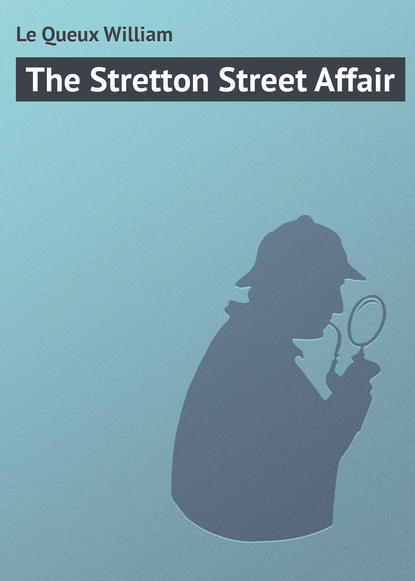По всем вопросам обращайтесь на: info@litportal.ru
(©) 2003-2024.
✖
The Stretton Street Affair
Автор
Год написания книги
2017
Настройки чтения
Размер шрифта
Высота строк
Поля
The owner of the big mansion went pale to the lips, and muttered an affirmative.
“I hold a warrant for your arrest on the charge of the wilful murder of Gabrielle Engledue on the seventh of November last,” said the Superintendent. “Your accomplice Sanz is already under arrest, I may tell you, and orders have gone out to Paris and to Florence for the arrest of your friends Suzor and Moroni.” Then turning to his lieutenants, he gave orders for the great financier to be secured.
So utterly aghast was the guilty man at our sudden appearance, and the terrible charge levelled against him, that he was quite unable to speak. He tried to articulate, to protest, but his tongue seemed tied. Only a low, gurgling sound escaped his lips, and the next second he had collapsed into the arms of the detectives who half carried him out to the taxi which stood near by in readiness.
He was placed in a cell at Bow Street to await his appearance before the stipendiary on the following day, but an hour later when the warder went to him he found him dead. Upon the thumb of his left hand was a slight punctured wound.
Rather than face a trial and the penalty for his crimes, he had killed himself by that same most deadly drug by which he had sought to enrich himself.
Next day all the world rang with the sensational news of the arrest and suicide of the mighty millionaire of Europe, but De Gex had many influential friends, hence to the public the actual truth was never disclosed.
Mateo Sanz was extradited to Spain, where at the Assize Court at Madrid he was, six months later, sentenced to death and in due course executed, while Moroni, after many delays, as is usual in the Italian Courts, was sentenced to fifteen years’ imprisonment for being in the possession of orosin, and also attempting to administer it. The charge against him of having had a hand in the heartless murder of poor Gabrielle Engledue was unfortunately not substantiated for lack of evidence.
Though the police are still seeking everywhere for Gaston Suzor, he has not up to the present been found. They, however, do not despair of arresting him.
At first it was resolved to seek the man-servant Horton and arrest him, but as it seemed that he had had no actual hand in the girl’s assassination, and as, moreover, the murderer had committed suicide, his evidence was not required, the hue-and-cry after him was dropped.
And myself?
What need I say, except that to-day I am extremely happy. Owing to the sudden great rise of some securities which my father left me I later found myself quite well off. Indeed, upon the death of old Mr. Francis a few months ago, I was able to purchase a partnership in the firm, and I am thankful to say we are doing quite well in face of the strenuous competition in electrical engineering.
Gabrielle Tennison, the sweet, open-hearted girl whom I first met under such extraordinary circumstances, is now my wife. We live very happily in a charming, old-world farmhouse embowered in roses and honeysuckle, on the Portsmouth Road at Cobham, in Surrey.
Life nowadays is one of idyllic bliss, of perfect love and undisturbed peace, different indeed from that fevered year of struggle, adventure, travel and unrest during which I strove so steadily and with all my might to avenge the crimes of Oswald De Gex, and to unravel that tangled skein of the misdeeds of the international financier – the Stretton Street Affair.











